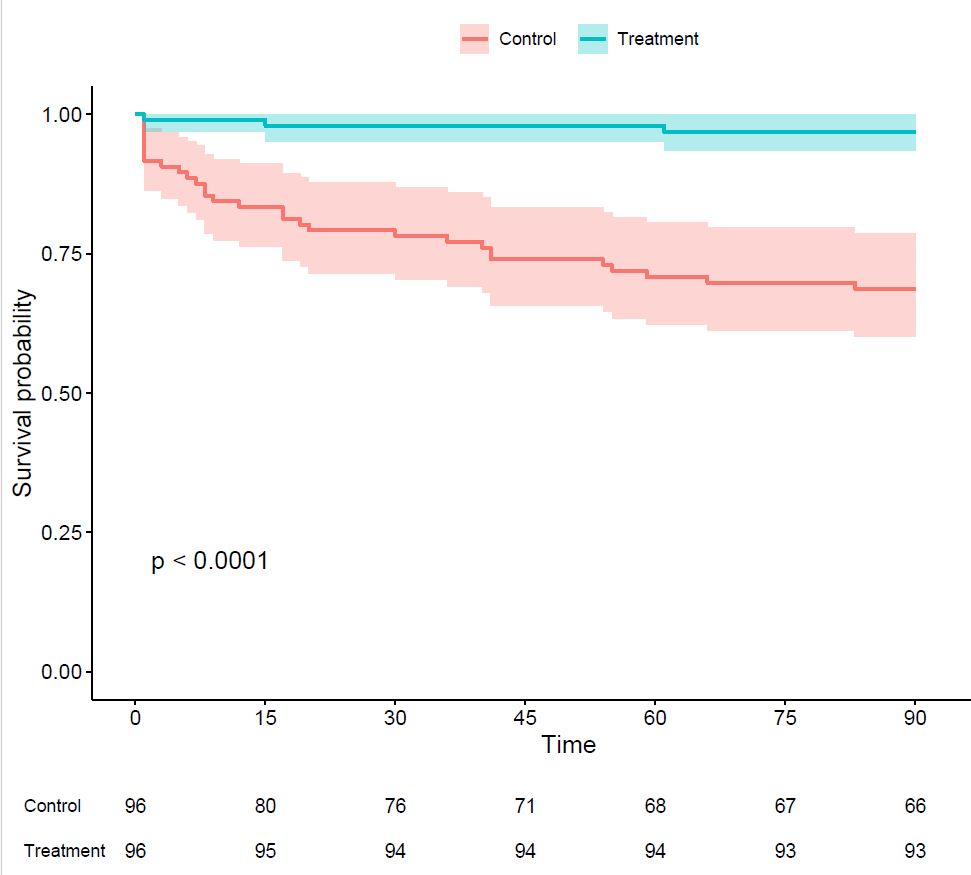Background: Elderly patients have a higher risk of developing aspiration pneumonia and have a higher risk of death if hospitalized for aspiration pneumonia. This study was conducted to confirm the effectiveness of an aspiration prevention program using the Gugging Swallowing Screen (GUSS) for elderly patients hospitalized with acute medical illness.
Methods: Starting in April 2021, a team of hospitalists began an aspiration prevention quality improvement (QI) program using GUSS for elderly patients aged 65 years or older with risk factors for dysphagia admitted to the AMU of Seoul National University Bundang Hospital in South Korea. To demonstrate the effectiveness of this program, data from 197 elderly inpatients with aspiration risk factors who did not undergo the QI program from January 2017 to March 2023 and data from 110 patients who underwent the program were retrospectively reviewed. One-to-one propensity score matching (96:96) was used to match baseline characteristics and aspiration risk factors.
Results: There were no significant differences in NPO period, changes in weight and albumin upon discharge after hospitalization, and length of stay depending on whether the aspiration prevention program was implemented. However, the risk of readmission within 90 days was significantly lower in patients who underwent the GUSS program (HR 0.085, 95 CI 0.025 – 0.290, p=0.001). Additionally, as a result of analyzing patients who did not undergo VFSS, the readmission rate within 90 days of patients who did not receive an aspiration prevention program was found to be approximately 20 times higher than that of patients who participated in the prevention program (p=0.0041).
Conclusions: Aspiration prevention program using GUSS was found to be effective in preventing readmission within 90 days in elderly patients with acute medical illness. Additional studies might be needed to confirm this result.

